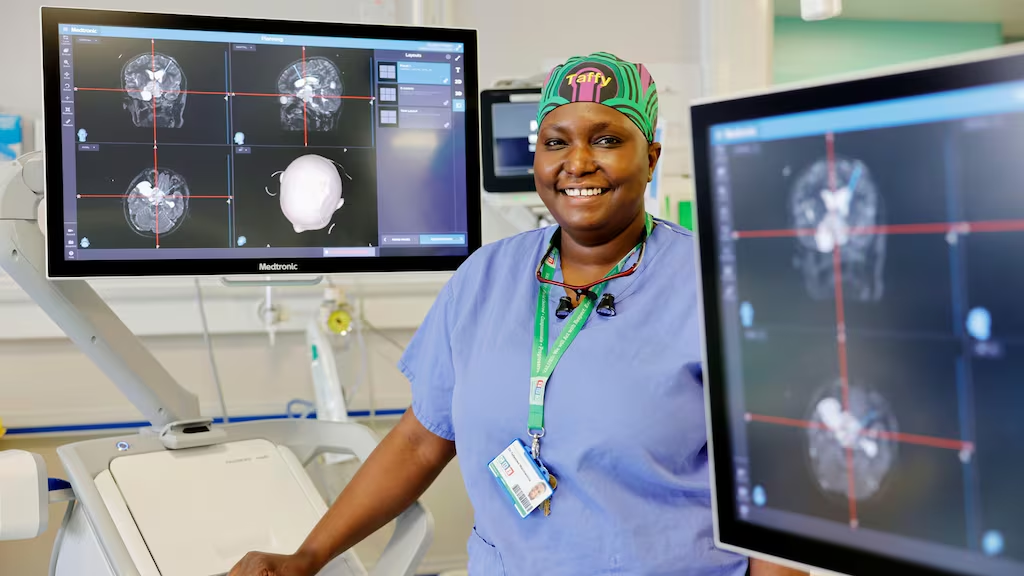Tafadzwa Mandiwanza has etched her name into the annals of medical history as Ireland’s first female pediatric neurosurgeon.
Born and raised in Harare, Zimbabwe, Mandiwanza nurtured her dream of becoming a doctor from the age of three, inspired by her parents—her mother, a nurse, and her father, who supported her early ambition.
Now, as a consultant at Temple Street Children’s University Hospital in Dublin, she combines her surgical expertise with a passion for helping children recover from life-altering conditions.
A Journey from Harare to Ireland’s Operating Rooms

After completing medical studies at University College Cork, Mandiwanza initially considered a career in cardiothoracic surgery. However, a pivotal moment during her surgical training—performing a subdural hematoma procedure—steered her toward neurosurgery.
“That experience amazed me,” Mandiwanza shared, reflecting on her first operation. “I realized I had the ability to make such a profound difference in less than an hour.”
Breaking Barriers in a Male-Dominated Field
As one of only two female neurosurgeons in Ireland, alongside Catherine Moran, Mandiwanza has navigated the challenges of a male-dominated profession.
While she acknowledges the global prevalence of discrimination against female surgeons, she’s grateful that her journey as a consultant has been marked by support and respect.
However, her earlier years were not without challenges.
“As a trainee, I sometimes felt excluded from the boys’ network,” she admitted. Still, Mandiwanza persisted, earning her place as a valued team member in her field.
Empathy in the Operating Room
Mandiwanza’s approach to neurosurgery is grounded in empathy, particularly as a parent herself.
“I feel I can relate more deeply to families because I understand their fears,” she explained. Whether treating devastating injuries, malignant tumors, or cerebrospinal fluid disorders, she prioritizes communication and compassion.
Despite the emotional weight of her work, Mandiwanza draws strength from the resilience of her young patients.
“Children have an incredible ability to recover. Their capacity to bounce back inspires me daily,” she said.
Balancing Career and Family
The demanding nature of pediatric neurosurgery requires relentless dedication. Mandiwanza often works unpredictable hours, with late-night surgeries followed by early morning clinics.
Yet, she finds solace in cooking, staying connected with her three daughters, and being a role model for them.
“I balance the guilt of being a working mom by showing my girls that they can achieve anything, as long as they remain decent human beings,” she shared.
A Vision for the Future
Looking ahead, Mandiwanza hopes to mentor aspiring neurosurgeons, particularly women.
“I wouldn’t be here without the incredible mentors who guided me,” she said. “Now, it’s my turn to encourage others through the long training pathways.”
When asked about the differences between male and female surgeons, she remarked:
“We’re more empathetic and less ‘God-like.’ While all surgeons need confidence, female surgeons are often more self-effacing. Imposter syndrome is something I face daily, but I remind myself that I’ve earned my place.”
